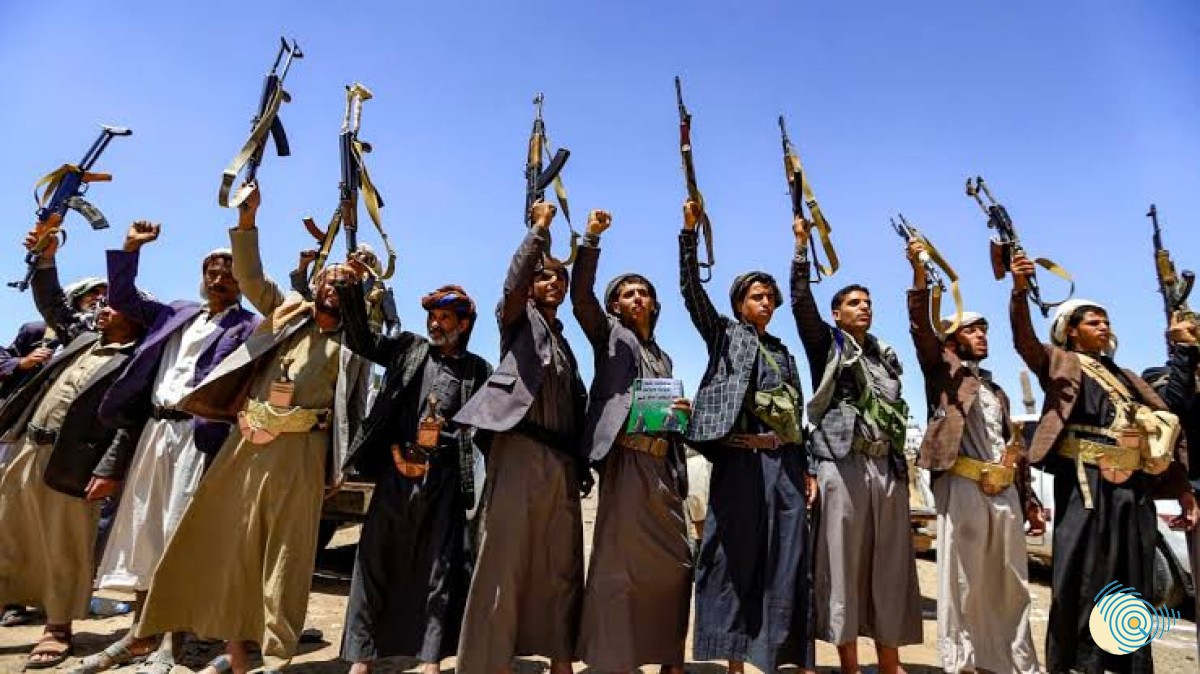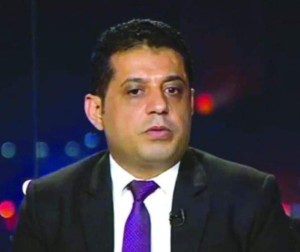Deliberate terrorism: Why are aid workers targeted in Yemen?
- 11 Sep 2023


The assassination of Muayad Hamidi, the head of the World Food Programme (WFP) in Taiz, marks a distressing development that severely impacts the United Nations' humanitarian relief efforts in Yemen. This act of violence serves the sinister purpose of portraying Yemen as an unsafe environment for UN personnel and humanitarian workers. Disturbing reports from the United Nations and international relief organisations reveal that employees of these organisations have faced repeated attacks in Yemen.
The legitimate government of Yemen has vowed to apprehend the perpetrators responsible for this heinous act and bring them to justice. However, the repercussions of this incident loom large and could potentially disrupt the ongoing efforts of the United Nations and humanitarian organisations in Yemen. It is essential to recognise that Yemen is grappling with one of the most severe humanitarian crises globally, mainly as many organisations have recently established branches in Taiz as part of their decentralised relief initiatives. This strategic move aims to mitigate the restrictions imposed by the Houthi forces on humanitarian and relief work. These organisations have sought to capitalise on their continued presence in Sana'a to facilitate their operations in Yemen.
The UN World Food Programme (WFP) reported the assassination of Muayad Hamidi, the WFP's Taiz head, on July 21, 2023. He was fatally shot by an unidentified assailant riding a motorcycle while leaving a restaurant in Turbah, located in the southern part of Taiz Governorate. Sadly, he succumbed to his injuries shortly after being transported to a local hospital. The following day, security authorities announced the apprehension of the individual responsible for this tragic incident—a local citizen suspected of having ties to Al-Qaeda. The suspect, originally from Lahj in southern Yemen, had fled Aden due to security operations against the organisation.
Muayad Hamidi, a 50-year-old Jordanian national, had been associated with the WFP for 18 years and had previously served on missions in Yemen, Sudan, Iraq, and Syria. His recent arrival in Yemen was to assume the role of WFP office head in Taiz Governorate.
A Series of Disturbing Incidents:
The tragic assassination of Muayad Hamidi in Taiz adds to a series of unsettling events involving UN personnel in Yemen. Currently, five members of the UN Department of Safety and Security remain in captivity, having been abducted by Al-Qaeda militants in February 2022 while operating in Abyan Governorate in the country's southern region. Additionally, two UN employees are still held by Houthi forces in Sanaa.
Regrettably, Hamidi's death marks the second such incident involving the assassination of a UN staff member in Taiz Governorate. In a previous tragedy on April 21, 2018, Hanna Lahoud, a Lebanese national responsible for the ICRC's detention program, met a similar fate. Following Lahoud's assassination, the ICRC made the difficult decision to withdraw 71 of its staff members from Yemen and suspend all humanitarian operations, including crucial services such as clean water initiatives, food assistance, and detainee visitations. However, the organisation later rescinded this decision in the same year.
Disrupted Efforts to Alleviate the Taiz Siege:
The tragic assassination of Muayad Hamidi represents a devastating setback for the legitimate government and a coalition of civil society organisations and activists working tirelessly to alleviate the prolonged siege of Taiz. Prior to this incident, the government and activists had initiated an extensive media campaign with the primary objective of shedding light on the extensive suffering endured by the governorate's residents due to the unjust blockade imposed by the Houthis for the past nine years. This campaign also sought to condemn the international community's perceived indifference toward the Houthis' use of hunger as a weapon against Taiz's residents. Furthermore, this tragic event unfolded after UN agencies had made the decision to establish an official office in Taiz, a region under government control. This move aimed to streamline and facilitate emergency relief efforts in the area.
Reactions to the Assassination:
The international, regional, and local communities reacted with outrage to the assassination, and the most notable responses include:
Swift Actions to Apprehend Perpetrators:
Rashad Al-Alimi, the head of the Presidential Leadership Council, immediately called on the governor of Taiz, Nabil Shamsan, to take urgent measures in pursuing the "criminal elements" responsible for the armed attack that led to Hamidi's tragic death. Al-Alimi also reiterated the government's and Presidential Council's commitment to safeguarding humanitarian efforts, bringing the culprits to justice, and implementing necessary apprehension measures.
Parliamentary Condemnation:
Yemen's Parliament vehemently condemned the assassination, characterising it as a grievous blow. Sheikh Sultan Al-Barakani, the Speaker of Parliament, reached out to his Jordanian counterpart to emphasise that Yemen's security forces were vigorously working to detain the perpetrators and hold them accountable. The Ministry of Foreign Affairs also issued a statement expressing the government's condemnation of the assassination and its renewed commitment to ensuring justice is served against those responsible.
Emergency Security Measures in Taiz:
The security committee in Taiz swiftly announced plans for an emergency meeting under the leadership of Governor Shamsan to assess the situation. Subsequently, the security services in Taiz governorate confirmed they had identified the individuals implicated in the crime and initiated efforts to apprehend them. In a notable development, they announced the successful arrest of the "criminal cell" responsible for Hamidi's assassination and initiated preliminary investigations to ascertain the motives behind this tragic act.
Global Outrage and Condemnation:
The assassination has elicited widespread condemnation on the international stage:
United Nations Condemnation:
The United Nations itself expressed its strong condemnation of the operation. This act of violence against a UN staff member was met with unequivocal disapproval from the international organisation.
World Food Programme (WFP) Response:
Cindy McCain, the Executive Director of the World Food Programme, issued a resolute condemnation of the killing. She emphasised the imperative of holding those responsible for this tragic loss of life accountable and stressed that relief workers should never be subjected to such threats. Richard Dragan, the WFP Representative and Country Director in Yemen, lamented the profound tragedy this event represents for their organisation and the humanitarian community.
European Union's Stance:
The European Union, in a concise statement shared on its Twitter account, also condemned the assassination. The EU called for the perpetrators to be brought to justice with the utmost seriousness, underlining the global consensus against such acts of violence.
These expressions of international outrage underscore the gravity of the situation and the demand for justice in response to this heinous act.
Exposing Motives: The Houthis and Al-Qaeda
The responsibility for the assassination of Muayad Hamidi has raised questions about the motives behind this heinous act. While initial suspicions have pointed towards Al-Qaeda in Yemen, a notorious organisation known for such actions, a broader perspective cannot be dismissed.
Al-Qaeda Involvement: Al-Qaeda's responsibility is not unfounded, given its historical hostility towards international involvement in Yemen, even when it pertains to humanitarian aspects. The organisation has demonstrated its readiness to target international entities in the past.
Houthi Involvement: On the other hand, local observers have not ruled out the involvement of the Houthi militia in the assassination. It's plausible that such an act could have been executed within the context of a mutual understanding or support between the Houthis and Al-Qaeda.
The presence of international humanitarian organisations in Taiz aimed to coordinate and manage their operations in the region, circumventing the hurdles and restrictions imposed by the Houthi militia on their work, especially in government-controlled areas. The arrest of some of their personnel added to the challenges they faced. Thus, it's conceivable that the Houthi militia might have orchestrated the attack to deter these organisations and portray Taiz as an unsafe environment for their operations.
The complex and multifaceted nature of the Yemeni conflict makes it difficult to pinpoint a single motive, and further investigations are essential to uncover the truth behind this tragedy.
Potential Consequences:
The tragic assassination of Muayad Hamidi is expected to have far-reaching consequences, further complicating Yemen's already dire humanitarian situation. Several potential implications can be foreseen:
Obstacles to Relief and Aid: Hamidi's death will likely hinder the delivery of relief and humanitarian aid to Yemen. This will result in increased suffering for vulnerable groups, particularly those whose survival depends on the vital assistance provided by humanitarian programs.
Impact on Food Aid: The World Food Programme (WFP) is a crucial provider of food aid in Yemen, and its operations have been critical, especially since the outbreak of armed conflict in 2014. Approximately 60% of the total funding for response plans (roughly $30 billion) has been directed towards the WFP. Hamidi's assassination may lead to a reduction in the WFP's activities and personnel, which could exacerbate the humanitarian catastrophe in Yemen.
Reduced Humanitarian Activities: The UN and international organisations may decide to scale back their operations and reduce the number of their personnel in Yemen as a response to heightened security concerns. This could result in a decrease in the overall humanitarian efforts in the country, negatively impacting those in need.
In summary, the assassination of Muayad Hamidi threatens to worsen the humanitarian crisis in Yemen, with potentially devastating consequences for the most vulnerable populations in the country.
Challenging Humanitarian Conditions:
Yemen is currently grappling with severe humanitarian challenges, including:
Food Insecurity: Reports indicate that a significant portion of Yemen's population suffers from food insecurity. Poverty affects 71% and 78% of Yemenis, with women particularly vulnerable. Moreover, over two-thirds of infants do not receive adequate care and nutrition. The United Nations Humanitarian Response Plan for 2023 reveals that around 80% of the population faces difficulties accessing food and safe drinking water.
High Levels of Food Insecurity: Yemen remains one of the most food-insecure nations globally, with 3.2 million people experiencing severe food insecurity. The situation is anticipated to deteriorate further in 2023 due to reduced humanitarian aid. Despite requiring $3.2 billion to fund the humanitarian plan for the year, only $1.2 billion has been collected. The conflict in Ukraine has also contributed to increased food commodity prices, energy costs, and transportation expenses.
WFP Funding Shortage: The World Food Programme (WFP) reported in April 2023 that available funding covers a mere 27% of the program's yearly needs. As a result, food rations have been reduced in size, with the revised rations now amounting to just 65% of the standard food basket.
Yemen's humanitarian situation is dire, characterised by widespread poverty, food insecurity, and a significant funding gap for critical aid programs, further exacerbated by global economic factors.
In conclusion, it is evident that the ongoing terrorist attacks against humanitarian workers in Yemen have dire consequences for the already suffering Yemeni population. These incidents hinder the efforts of humanitarian organisations to deliver essential aid to those in need, leading to a further deterioration of humanitarian indicators in the country. As such, the ability to respond effectively to the pressing humanitarian needs of Yemenis has declined.
While the swift action taken by the government to apprehend the perpetrators is a positive step, it follows a series of security failures related to the work of humanitarian organisations. In light of these challenges, Yemen's humanitarian crisis remains a pressing concern, and addressing the security risks faced by humanitarian workers is crucial to mitigating the suffering of the Yemeni people.
The stated views express the views of the author and do not necessarily reflect the views of the Center or the work team.
Comments